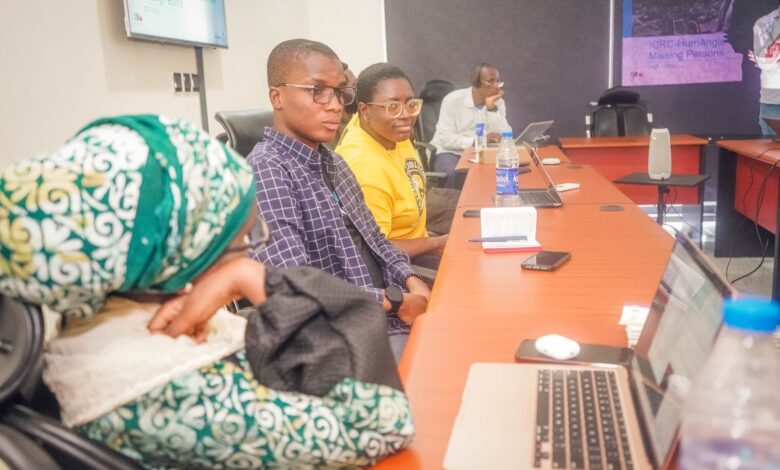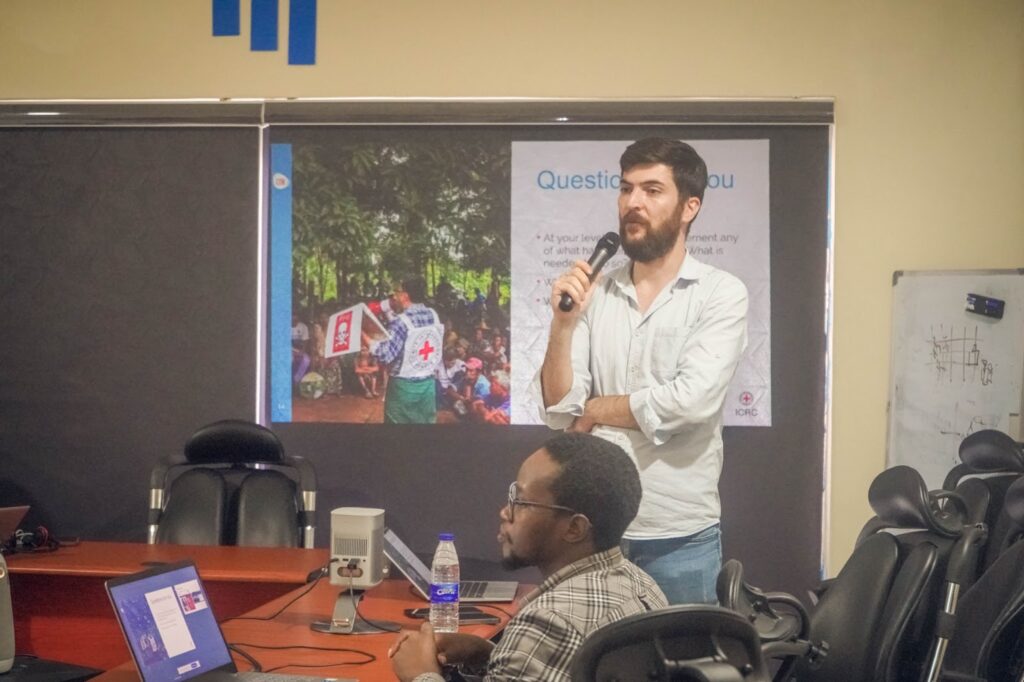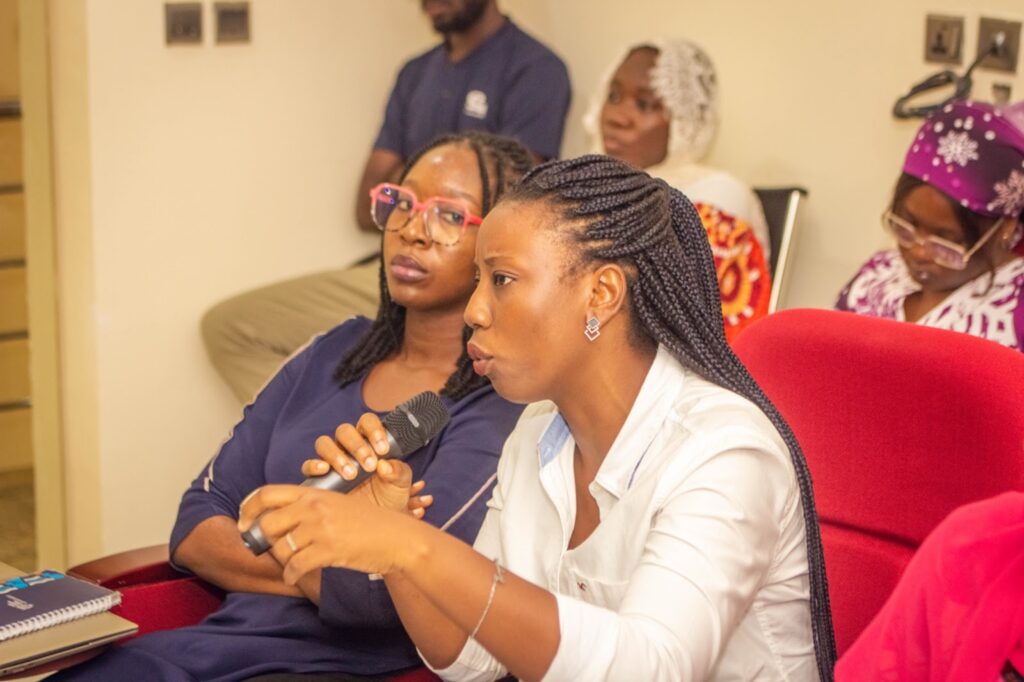ICRC, HumAngle Conclude Two-Day Workshop on Missing Person and Family Separation in War Zones
The International Committee of the Red Cross (ICRC) has just concluded a 2-day training for the newsroom on reporting on missing persons and family separations in conflict-affected areas. Participants said they appreciated the opportunity to widen their knowledge of the matter.

The International Committee of the Red Cross (ICRC) has concluded a two-day training for HumAngle journalists on missing persons and family separations in conflict zones. The workshop, held at HumAngle’s headquarters in Abuja, explored topical issues surrounding handling information about a missing person, especially amid humanitarian crises.
Qusai Alazroni, ICRC’s Communications Coordinator, led sessions to sharpen participants’ understanding of the complexities involved in interacting with affected families. Serhat Ozturk, another delegate from the humanitarian organisation, made a presentation to explain the effects and challenges of separation and enforced disappearance on victims of war.
The session examined cases of people who previously experienced separation and displacement, identifying the immediate needs and traumas of such persons and their families. Issues were raised about families of missing people refusing to conduct funerals because they cannot accept that their loved ones are dead. Ozturk highlighted the sensitivity of dealing with families of missing and separated persons.

In a succeeding session, Alazroni led a discussion on the role of the media during humanitarian crises and pathways that could foster credible and balanced reporting of these critical issues. Angela Umoru-David, the Director of the newsroom’s sister organisation, HumAngle Foundation, chipped in, explaining that the foundation is exploring ways of amplifying and conducting advocacy efforts from a solutions-driven approach.

“I see an opportunity for the Foundation to help in not just reframing the conversation, but also to help with building mechanisms around the deployment of some of these solutions, and replicating some of the models that the ICRC has tried,” she said.
During the interactive sessions, Alazroni acknowledged that there has been progress generally and that while it is slow, it is mainly because this kind of work takes time.
Alazroni emphasised the importance of the media pushing for improved efforts from key stakeholders and stressed the need for intentional reporting, leveraging sensitive data, and purposeful partnerships with relevant agencies to achieve significant impact.
Speaking on one key takeaway from the training, HumAngle’s Investigations Editor, Kunle Adebajo, said he hoped more journalists would begin to think of intentional ways of keeping in touch with and checking up on sources, especially after interviewing them about a traumatic experience, so as not to leave them worse off. “I hope this is something more journalists would do,” he said.
HumAngle’s Managing Editor, Hauwa Shaffii Nuhu, commended the ICRC for the important work they do in ensuring the lives and families of people struggling in conflict zones are secured and separated families are reunited.
“We have respect for the work that you do. A lot of the investigations we have been able to do around missing persons would not have been possible without the foundation that your organisation has laid over the past years. Because you’ve established that tens of thousands of people are missing in the northeast, we had the authority to go ahead and investigate some of the cases because we know you as credible sources.”
The training ended with both organisations reaffirming the need for more collaborations like this one across newsrooms and like-minded organisations.
The International Committee of the Red Cross (ICRC) conducted a two-day training for HumAngle journalists on addressing issues related to missing persons and family separations in conflict zones. Led by ICRC's communications coordinator Qusai Alazroni, the sessions focused on understanding the complexities of interacting with affected families and the effects of separation caused by conflicts. Discussions included the challenges families face, such as the refusal to conduct funerals for missing loved ones, and stressed the importance of sensitive media reporting to aid these families.
The training also explored the media's role in humanitarian crises and the need for credible reporting, intentional use of sensitive data, and partnerships with relevant agencies. Angela Umoru-David of HumAngle Foundation highlighted the need for solutions-driven advocacy efforts.
HumAngle’s Investigations Editor, Kunle Adebajo, emphasized the need for journalists to maintain contact with traumatized sources, and Managing Editor Hauwa Shaffii Nuhu appreciated the ICRC's role in aiding investigations into missing persons.
Both organizations expressed a commitment to further collaborations to support families affected by conflict.
Support Our Journalism
There are millions of ordinary people affected by conflict in Africa whose stories are missing in the mainstream media. HumAngle is determined to tell those challenging and under-reported stories, hoping that the people impacted by these conflicts will find the safety and security they deserve.
To ensure that we continue to provide public service coverage, we have a small favour to ask you. We want you to be part of our journalistic endeavour by contributing a token to us.
Your donation will further promote a robust, free, and independent media.
Donate HereStay Closer To The Stories That Matter





Thanks for the great content. Always look forward to your posts!